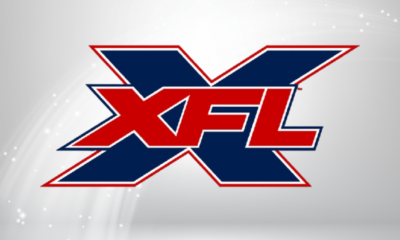
Have you heard about the XFL – the professional football league that lasted just one season in 2020 before being cut short by COVID-19? Unlike the buttoned-up NFL, this scrappy upstart wasn’t afraid to fully embrace sports betting.
From broadcasting betting odds to naming official gaming partners, the XFL provided a fascinating case study in how newer sports leagues can integrate gambling into their business model.
As legal online sports betting expands in North America, the XFL’s approach offers insight into the future intersection of pro sports and wagering. Read on to explore how this league pushed boundaries and could impact online casinos.
XFL Promoted Sports Betting from the Outset
Right from the initial announcement of the league’s relaunch, the XFL made it clear it would court sports bettors, not shun them. You can explore all sorts of fun casino games for Canadians and Americans already, but with the XFL, the options exploded.
XFL executives directly consulted with Las Vegas sportsbooks to get input on potential rules and scoring changes that would appeal to gamblers. “I thought it was very interesting,” said John Murray, director of the Westgate SuperBook. “It was cool just to talk to the guys who were starting a new football league and see what kind of ideas they had.”
The league’s timing was no accident either. The XFL intentionally scheduled its season to kick off right after the NFL’s Super Bowl, when football fans would be hungry for more action. They wanted to make sure fans could bet on XFL games from day one.
In December 2019, the league brought one of its teams, the LA Wildcats, to Las Vegas for a mini-camp. Sportsbook executives got to meet players and ask questions to get a better feel for the new league. The XFL saw an opportunity to build relationships and become a betting-friendly option.
Broadcasting Odds and Gambling References
Once games started in February 2020, the XFL’s embrace of gambling became even more apparent to viewers. Television broadcasts prominently displayed the point spread and over/under total for scoring on the scoreboard graphic at all times.
Announcers freely discussed how certain plays affected whether a team would cover the point spread or drive the game over or under the total. At times, it sounded more like a sports betting podcast than a traditional football broadcast.
The XFL also ran advertisements for sportsbooks like Caesars during games and aired alternate “BetCast” broadcasts focusing squarely on gambling. This sports betting-centric programming showed the league’s commitment to fully integrating gambling.
Impact on Sports Betting Industry
The XFL generated mild curiosity from bettors and helped fill the void after the Super Bowl. Sportsbooks reported taking many small wagers on XFL games from recreational bettors. The handle (total money wagered) was larger than on some NBA and NHL games.
However, the overall betting handle was still relatively small for bookmakers, generally less than 5% of a typical NFL game. Professional bettors lacked information needed to properly handicap XFL teams and remained cautious.
Still, as a brand new league, the XFL delivered extra content for gamblers during the NFL offseason.There is even a path to the NFL for XFL players potentially now. Over time, with more data and familiarity, betting interest likely would have grown.
Partnerships with Sportsbooks and Gaming Companies
In addition to promoting gambling via its broadcasts, the XFL also formed official partnerships with sports betting operators. Caesars and FOX Bet became the league’s first two authorized gaming partners.
The XFL announced similar agreements with DraftKings for betting and daily fantasy sports and Genius Sports for data to fuel the wagering market. It also collaborated with VSiN, Brent Musburger’s sports betting media network, on betting-focused shows.
These deals provided the XFL with revenue and marketing exposure in the sports betting sphere. The league made clear it wanted to be the most betting-friendly option for gaming companies.
Future Outlook for Sports Betting in the XFL
XFL executives were upfront that they saw legalized sports gambling as a pivotal part of the league’s identity. They expected that as more states moved to legalize wagering, the league would continue finding ways to integrate betting.
One possibility was experimenting with more alternate game broadcasts catering specifically to bettors. The league also planned to use data to create more prop bets and in-game wagering opportunities through its partnerships.
While the XFL only made it through half a season, it helped demonstrate the big appetite for betting on new sporting events. Had it continued, sportsbooks likely would have seen steady growth in handle as fans got familiar with the teams and players.
Lessons for Major Leagues
Although the XFL only lasted 5 weeks, it still offers some intriguing lessons for established sports leagues. NFL broadcasts dabbled with occasional gambling references after PASPA was struck down, but nothing to the degree of the XFL’s commitment.
Being betting-friendly engages an entirely different fanbase motivated by putting some skin in the game. However, leagues need to be careful not to alienate other fans turned off by constant gambling talk.
Deals with casinos, daily fantasy sites and sportsbooks provide a new revenue stream, but leagues must weigh the risks. The massive popularity of NFL betting even while unregulated shows leagues can benefit from gambling’s popularity without actively promoting it.
Reaction to the XFL’s Sports Betting Focus
The XFL’s heavy focus on gambling drew a range of reactions within the sports world. Some saw it as smart business, while others expressed concerns about the message it sent.
Increased Engagement
Proponents argued the XFL’s approach tapped into an audience that otherwise may not engage as much with a new league. By catering to bettors’ interests, it drove TV ratings upwards, social media interaction, and general awareness.
Gambling content gives fans another reason to tune in and follow league storylines. Sports attorney Daniel Wallach said “It’s a way to increase and enhance fan engagement.”
Normalizing Betting
However, critics claimed overemphasizing gambling normalized risky behavior. They felt bombarding fans with odds and betting talk, especially young people, could lead to problems down the road.
Ethical Questions
Others pointed to ethical questions surrounding sports leagues directly partnering with gambling operators. These deals involve sharing data and intellectual property.
Sports economist Victor Matheson said, “The whole thing makes me queasy. Sports gambling is significantly different from other types of gambling,” since leagues have to maintain competitive integrity.
There was passionate debate around the XFL’s trailblazing approach. While increased engagement excited many, it concerned those wary of potential pitfalls.
Conclusion
The XFL marching straight into the sports betting sphere was both risky and revolutionary. While it didn’t have time to fully follow through on its ambitions, it moved the ball in a way the NFL and other cautious leagues have not.
It proved that eyeballs and betting dollars will follow when a league fully embraces sports wagering. We may look back at the XFL as a trailblazer that pushed major American institutions toward a future with betting fully integrated into pro sports.
What do you think? Should leagues go all-in on gambling like the XFL or take a more moderate approach? There are good cases on both sides. But one thing is clear – with online betting surging in popularity, this issue isn’t going away anytime soon.
Unleash the Action: Sign up for XFL Insider and Fuel Your Passion for Football!

USFL and XFL Merger: A Deep Dive into the Historic Collaboration
Latest Podcast
-


XFL Podcast
/ 1 year agoXFL-USFL Merger Insights: Houston’s Future, Draft News, Player Movement – Ep. 216
Welcome to Episode 216 of the “XFL Week In Review,” your premier destination for...
By Mark Perry





